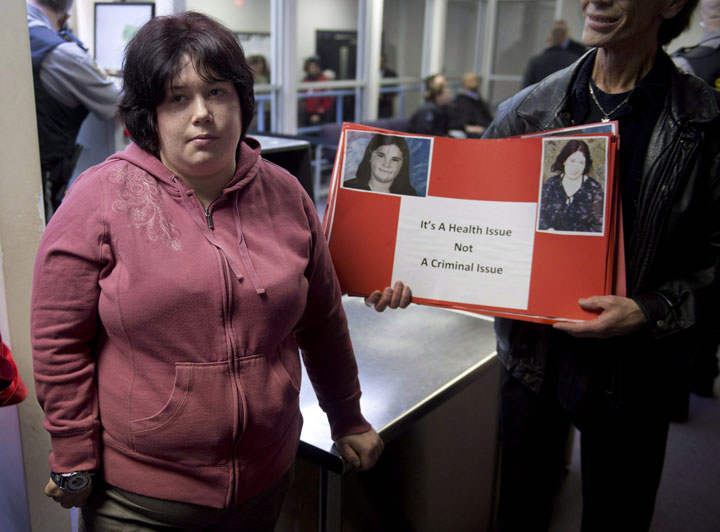HALIFAX – Health care workers in Halifax say the government must change the way people who suffer from mental illnesses are dealt with in the justice system.

Joan Jessome, the president of the Nova Scotia Government Employees Union (NSGEU), says the safety of clients, health care works and other patients is at stake.
“There are some clients that are very violent, and our members get hurt on a regular basis on the job,” she said.
“Chairs being bolted, and tables being bolted and doors being secured and using plexiglass instead of glass. There are just ways you can create a place that’s safe for everybody in it.”
Many of the charges people with diminished capacity face include assault. Those in the health care field say sometimes things get out of control, and staff safety is at risk.
Nichele Benn, a young woman with special needs, is currently before the courts after allegedly biting a staff member at a rehabilitation centre and throwing a shoe.
On Thursday, Amanda Murphy, a 34-year-old woman with the cognitive ability of someone aged 5 to 8, was in Antigonish Provincial Court facing assault charges. Her case was adjourned until Feb. 19 so more charges could be added.
Theresa Reece, a retired community mental health worker, described an encounter she witnessed between a patient and a nurse.
“The patient grabbed the nurse and wound her fingers in her hair, and basically swung the nurse around like a rag doll,” she said.
Reece worked for more than 27 years at the Nova Scotia Hospital and says violent outbursts by patients happen on a daily basis.
“Sometimes they would threaten to throw things at you, or they’d come at you with a fist, but we were always taught how to deal with it, kind of like crisis intervention.”
Both Jessome and Reece agree that people with diminished capacity should not face criminal charges for their actions. They say there are alternative ways to address their behaviors.
“No matter what the disability is, consequences can be put in place so people understand that this is not an acceptable behavior,” said Jessome.
“Employers need to minimize the risk, and they don’t do a good job at it.
“There are a lot of people who don’t stay in the profession where they work with people with disabilities because they can’t get the safety issues death with.”




Comments